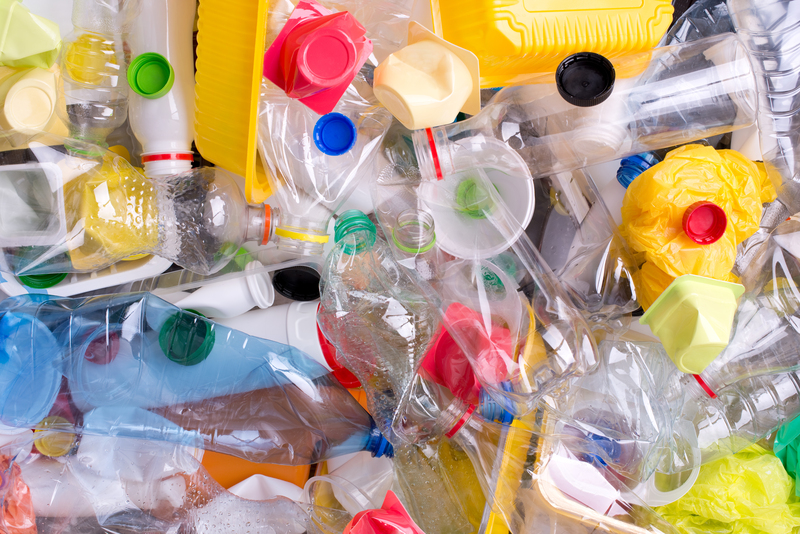Slash Your Bulky Waste Expenses With These Clever Tips
Is your bulky waste bill sky-high? You're not alone! Many homeowners and businesses are actively searching for smart ways to cut down the cost of bulky rubbish removal. Whether you're decluttering your home, remodeling the office, or clearing out a rental property, managing large amounts of waste doesn't have to strain your wallet. Slashing bulky waste expenses can be easier than you think with the right strategies.
In this comprehensive guide, you'll discover cost-effective bulky waste disposal tips, creative options for repurposing, and insider techniques that can help you save money while staying environmentally responsible!

Why Does Bulky Waste Disposal Cost So Much?
Before we jump into the tips, let's understand why bulky waste disposal can be so expensive. Items categorized as "bulky waste" - such as old furniture, broken appliances, mattresses, and large yard debris - are challenging to transport and often require special handling. Municipal collection services may limit pick-ups or charge extra, and private haulers usually price by volume or weight.
- Transportation fees for large items
- Disposal facility charges (landfill tipping fees, environmental surcharges)
- Labor costs for heavy lifting and handling
- Additional costs for dismantling or hazardous material checks
The good news? With a little planning and creativity, you can dramatically reduce your bulky waste expenses. Let's dive into the clever tips!
1. Plan Ahead to Combine Pickups
Most cities offer one or two annual bulky item pickups, often for free. Instead of disposing of items as you go, plan ahead and accumulate bulky trash for a single pickup. This reduces the frequency--and the total cost--of your collections.
- Check your city's annual schedule: Mark down free collection days on your calendar.
- Coordinate with neighbors: Some haulers or municipalities allow for group pickups, splitting costs among multiple households.
- Avoid rush decisions: Waiting can mean the difference between free and chargeable disposal!
2. Donate or Sell Usable Items
One person's trash is another's treasure! Rather than paying to dispose of usable bulky items, donate or sell them. Many charities, non-profits, and community groups are happy to accept furniture, working appliances, and other gently used large items.
- Online marketplaces: Use platforms like Craigslist, Facebook Marketplace, or local "Buy Nothing" groups to list items for free or sale.
- Charitable pick-up: Many organizations will pick up directly from your home, saving you both time and money.
- Tax deductions: Donated items may be tax-deductible. Save your receipts!
Quick Tip:
Always check donation guidelines first--some charities limit the types and condition of items they'll accept.
3. Disassemble, Compress & Reduce Volume
Bulk waste removal fees often depend on item size or volume. Breaking down items can save big! Dismantle furniture, remove legs from tables, disassemble bedframes, and flatten boxes wherever possible.
- Compress mattresses: Many bed-in-a-box stores sell mattress compression bags for easy shrink-wrapping.
- Dismantle appliances: Remove doors and unnecessary parts to reduce weight and volume.
- Bag loose debris: Use heavy-duty trash bags for soft or compressible materials (cushions, pillows, insulation).
The smaller your bulky waste pile, the less you pay--so wield that screwdriver with pride!
4. Compare Bulky Waste Removal Services
Not all waste haulers charge the same--and some specialize in specific types of bulky rubbish. Get multiple quotes! Be detailed when describing what you need picked up and ask about discounts for curbside, driveway, or consolidated pickups.
- Ask about minimum load charges: Haulers often have a flat minimum fee. Combine your waste with a neighbor or wait until you have enough to fill part of a truck.
- Check local regulations: Some cities offer vouchers or rebates for eco-friendly disposal or recycling of "white goods" (appliances), electronics, or mattresses.
- Bargain for repeat business: If you run a property management company or clean out estates regularly, negotiate a bulk or regular-user rate.
5. Leverage Recycling Programs
Many bulky items are recyclable! Recycling centers and scrap yards may accept things like appliances (white goods), metal bedframes, old bikes, and even some furniture. Rather than paying landfill fees, you may be able to dispose of them for free--or even earn some cash.
- Appliances: Remove hazardous parts (batteries, refrigerant) and bring to a recycling depot.
- Metal furniture: Bed rails, headboards, shelving, and frames are often wanted by scrap metal recyclers.
- Electronics: TVs, computers, and stereo systems usually require special handling, but recycling events may waive disposal fees.
Eco-Friendly Tip:
Check your county's website for "bulk recycling events"--these are often scheduled around holidays.
6. Rent a Dumpster -- and Fill It Wisely
For major clean-outs or home renovations, a dumpster may be your best bet for managing large volumes of bulky waste. But dumpster rental costs vary widely, so be strategic!
- Choose the right size: Too small, you pay for multiple hauls. Too big, you waste money. Get estimates based on your project's true scale.
- Share the cost: Ask neighbors if they have bulky items to dispose of and split a dumpster for one weekend.
- Load efficiently: Break down furniture, stack items, and avoid wasted space.
- Avoid surcharges: Don't include hazardous waste, tires, or electronics unless your provider allows it.
Pro Tip: Some companies offer "pay per use" or "bag rental" services for smaller jobs!
7. Tap Into Community Clean-Up Events
Towns frequently organize "bulky waste days", neighborhood clean-ups, or citywide disposal events. These are typically subsidized or entirely free for residents. Participating can save you hundreds of dollars each year--especially for items that are expensive to dispose of, like mattresses or appliances.
- Follow your town's calendar: These events may be regularly scheduled, or one-time deals.
- Arrive early: Events can reach capacity or fill up fast.
- Document your residency: Bring ID or a current utility bill as proof.
8. Upcycle or Repurpose Before You Dump
Before you throw bulky waste away, get creative! Many items destined for the dump can have a second life as something new.
- Furniture: Sand, repaint or reupholster worn couches, chairs, or tables.
- Wood: Pallets and old lumber can be made into planters, raised beds, or home decor.
- Appliance parts: Turn drums from washing machines into fire pits, or use glass doors from ovens in DIY greenhouse projects.
Not only does upcycling save you disposal fees, but it also benefits the Earth and your community.
9. Avoid Common Bulky Waste Disposal Mistakes
Cutting costs is as much about avoiding extra fees as it is about finding new solutions. Be cautious of these costly bulky waste mistakes:
- Illegal dumping: Fines for dumping bulky waste on public land are hefty--and it damages the environment.
- Ignorance of prohibited items: Mixing hazardous waste or electronics with regular bulky trash can result in surcharges.
- Poor scheduling: Missing your city's pickup day can mean paying for private service.
- Unnecessary urgency: Rushing to throw things away may lead you to miss free or cheaper options.
Insider Tip:
Always double check your hauler's rules--some require mattresses to be bagged, or have weight restrictions for single items.
10. Understand "Pay-As-You-Throw": Bulk Waste Pricing Explained
Many U.S. and UK communities now use "Pay-As-You-Throw" schemes for curbside collections, charging you for what you dispose of. Learn your city's pricing structure:
- Review rates: Do larger items cost more? Are items like sofas or mattresses surcharged?
- Prepay bags or stickers: Buying city-approved bulk waste tags in advance can be cheaper than "on demand" pickups.
- Volume vs. number of items: Some programs allow a set volume per collection--so if you can compress your waste, you slash costs!
Slash Bulky Waste Costs: Smart Summary Checklist
- Combine pickups and coordinate with neighbors: Maximize free or low-cost options.
- Donate or sell usable items: Lower your waste volume (and potentially earn cash or tax benefits).
- Disassemble everything: The smaller your pile, the less you're charged.
- Shop around for removal services: Compare prices and negotiate discounts.
- Use recycling centers: Appliances, metal and electronics may be recycled for free or even generate income.
- Split dumpster rentals: Share costs with your community for big clear-outs.
- Attend community clean-up events: These are frequently subsidized or free.
- Upcycle or repurpose: Give items a second chance before dumping.
- Avoid extra charges: Know your city's rules and regulations.
- Understand your "Pay-As-You-Throw" model: Use the system to your advantage.

Frequently Asked Questions About Bulky Waste Disposal
What counts as "bulky waste"?
Bulky waste typically refers to household items too large for regular bins: furniture, mattresses, major appliances, carpets, and sometimes large yard debris.
How often can I dispose of bulky waste for free?
City and town policies vary. Most offer free pickups once or twice yearly. Always check your municipality's calendar.
Are there penalties for improper dumping?
Yes! Illegal dumping can result in fines of hundreds or even thousands of dollars--not to mention environmental harm.
How do I find out if my items are recyclable?
Contact your local recycling center or municipal waste authority. Many have lists of accepted items online.
Conclusion: Save Big on Bulky Waste, Help Your Community
By combining these strategies--planning ahead, donating, breaking down waste, and utilizing local resources--you can slash your bulky waste expenses while keeping your home, neighborhood, and planet cleaner. Keep this guide handy anytime you're facing a pile of large rubbish, and remember: every smart decision can put money back in your pocket!
Ready to put these tips into action? Start with one or two that fit your needs, and watch your bulky waste expenses shrink--fast!
- Slash your bulky waste removal costs by planning, recycling, and repurposing.
- Stay eco-friendly and comply with local laws for best results.
- Share your favorite savings tips in your community--more people participating means greater benefits and lower costs for everyone!
Take control of your bulky waste--and your wallet--today!